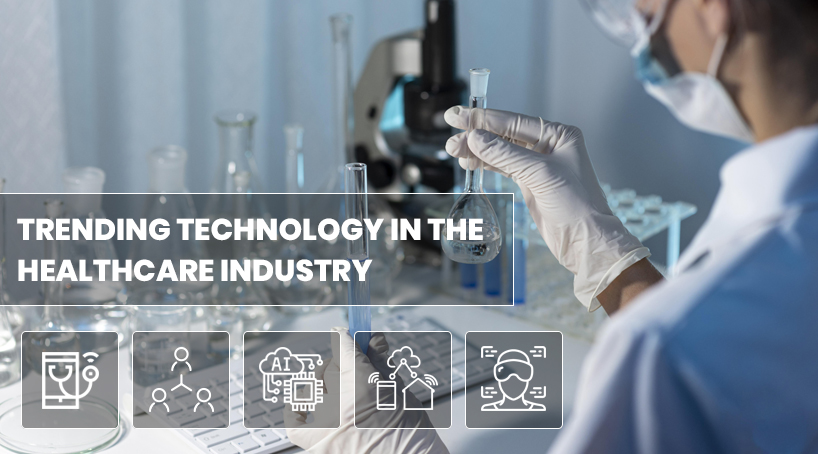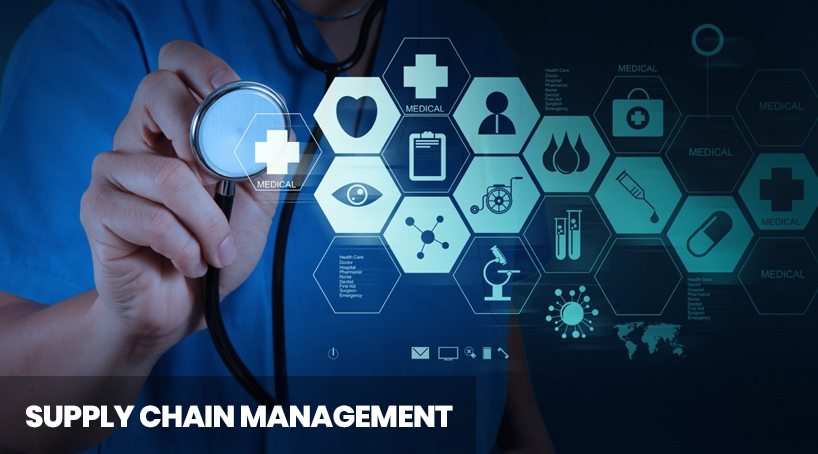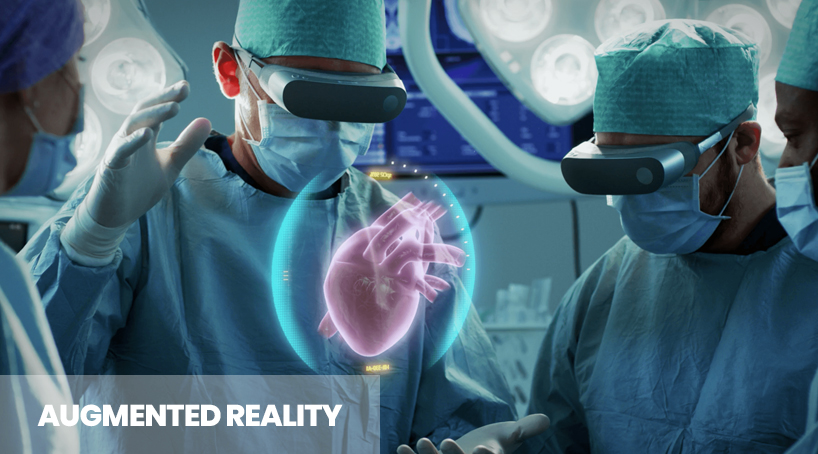- 7 min read
- Apr 27, 2021
- 0

Healthcare is one of the technologies that is always going to be regarded as one with vital importance. Healthcare technologies include every technology that helps discover and fight disease in humans. Unlike other industries, most countries collaboratively develop important parts of the technology and thus it develops in a more accurate manner.
New diagnosis methods, faster supply chain mechanisms and new procedures all parts of the technological evolution in healthcare. This is because the human body, in general, is very complicated and our lifestyle changes and new pathogens present a constant challenge for healthcare technology.
2020 itself has been a rough turn for healthcare, as the world faced an unprecedented event of the pandemic. It has been a whole year, but things have not changed much since. State-of-the-art medical technology is put to the test every day as new patients arrive to be treated. Healthcare technology is also one where strict rules are put in place as to how the technology is to be used.
Following are some important points regarding technology in the healthcare industry.
- Technology here refers to not only machines used in healthcare but also takes into account the factors of effective distribution practices.
- Accuracy is regarded as one of the hallmarks of medical and healthcare technology.
- The revenue from the healthcare industry has been increased from 405 billion US dollars in 2018 to 438 billion US dollars in 2020.
- The growth of the healthcare industry is expected to reach 594 billion dollars by 2024.
List of Healthcare Technology Trends
Healthcare technology has come a long way and is known to aggressively develop over the years. Even in the present, a significant budget of developed countries is invested in research and development in the area of healthcare. The recent Covid-19 pandemic in particular has just strengthened that process. The technology once accepted as a standard is quickly distributed to hospitals all over the world. Following is a list of technology trends in the healthcare industry.
Supply Chain Management

The supply chain is a very important thing in healthcare as many things in the process of treating patients are time-bound and resources deplete quickly. The supply chain must also ensure that any technology must not be contaminated by the environment. Finally, because of the recent pandemic, many countries experienced a lack of resources. Thus supply chain technology was heavily looked into and developed in healthcare.
Following are some important points regarding supply chain technology in healthcare.
- Automation and intelligent systems are used wherever possible in the supply chain, be it vehicles or control mechanisms.
- Just in time delivery systems dominate the healthcare supply chain, with storage of resources considered very important.
Telemedicine Applications
Telemedicine technology refers to technology that makes non-contact, long-distance treatment possible. The pandemic has greatly accelerated the telemedicine sector as non-contact diagnosis and treatment suddenly became very important.
By the April of 2020, 43.5% of all healthcare departments used telehealth methods rather than the in-person visit of patients. Patients have a strong liking for telehealth applications, which suggests a good future for such technology.
Following are some important points regarding telemedicine technology.
- Telemedicine technology is likely to break 186.5 billion US dollars by 2026.
- Telemedicine applications are compatible with cloud services, electronic health records and voice-based technology, which demonstrates their usefulness.
- Security concerns and accessibility is increasingly given importance in telemedicine healthcare app development.
Artificial Intelligence
Artificial intelligence is a technology that can learn from experience and as such is very useful in the medical industry. It is increasingly being used to develop faster and more efficient processes without compromising accuracy. Through machine learning algorithms, new drugs are developed in a faster manner by including advanced chemical and biological processes.
Following are the important points regarding artificial intelligence and machine learning in healthcare.
- MIT and Harvard have utilized machine learning to track mental health trends from popular websites like Reddit.
- Radiotherapy contouring has become way faster, reducing the work time from hours to minutes using artificial intelligence developed by Microsoft.
- AI may be used in the future for cancer diagnosis and for choosing the right drug for the patient by scanning through research papers.
Internet of Things

Internet of Things(IoT) technology allows the control of hardware through mobile and desktop devices. The medical industry has high hopes for this sort of technology, as it can help personnel diagnose and treat diseases easily.
Many devices including wearable electronic items, ECG and EKG machines already use IoT technology for accurate measurements of patient data. Glucose levels, skin temperature and blood pressure readings can also be taken from IoT-enabled devices.
Following are some points regarding the Internet of Things in the medical industry.
- The Healthcare industry has become so reliant on IoT devices that it represents 30% of the current market share of IoT.
- Consistent connectivity and security issues are a concern with IoT devices and efforts are presently being taken to address these issues in the healthcare app development process.
Augmented Reality

Virtual reality and augmented reality have great potential to change the healthcare industry. Most of such technology is presently limited to only high-end institutions, but it is slowly becoming popular. It is helpful for both research and treatment purposes. AR and VR technologies are being used to help stroke patients regain their motor control. VR headsets are being used to treat dementia.
Following are the important points regarding augmented and virtual reality in healthcare applications.
- Augmented reality is expected to have a great effect on robot-assisted surgeries on the human body.
- AR can help students learn more about medical procedures by using easier comparisons and overlays of important topics.
- Augmented reality can help healthcare professionals offer better service to their clients. They have real-time access to information that would otherwise be unavailable to them.
Privacy
Since many technological advancements have come into the medical world, it has become important to focus on the privacy of patient data. High-end security systems are used to store and retrieve patient information from hospital databases.
Only people with credentials are given access, and strict procedures are put in place to protect patient data. Unofficial centers may not be so good at protecting such data, so people must only choose healthcare centres that are governed by strict rules.
Following are some important points regarding privacy in healthcare.
- Several regulatory bodies exist to protect patient privacy. The HIPAA compliance and ePHI are two such standards.
- The regulations require that healthcare personnel only use equipment that has strong security features. Third-party software and equipment when used must be cleared by the vendor to be secure.
- The regulations also prohibit personnel from taking any unnecessary measurements from patients.
Conclusion
Due to its vital nature, healthcare technology is considered important by all parts of the world. Even though it is one of the most difficult areas of research, it is also one of the areas where technology growth has been seen consistently over many years. Healthcare applications are becoming smarter and more accurate around the world, and this has just been accelerated because of the pandemic.
Nextbrain technologies is a major mobile app development company in Toronto, Canada. It provides application development services on both Android and iOS devices and also provides ERP apps for various desktops.

